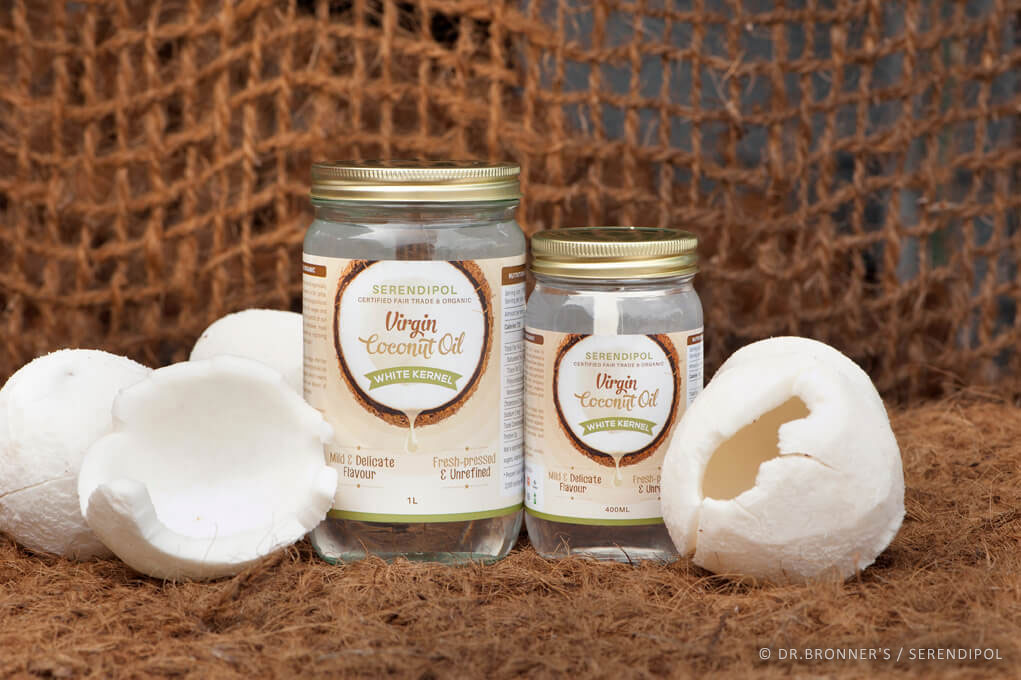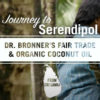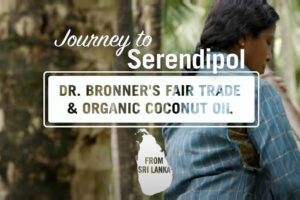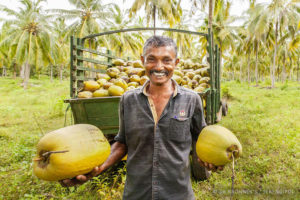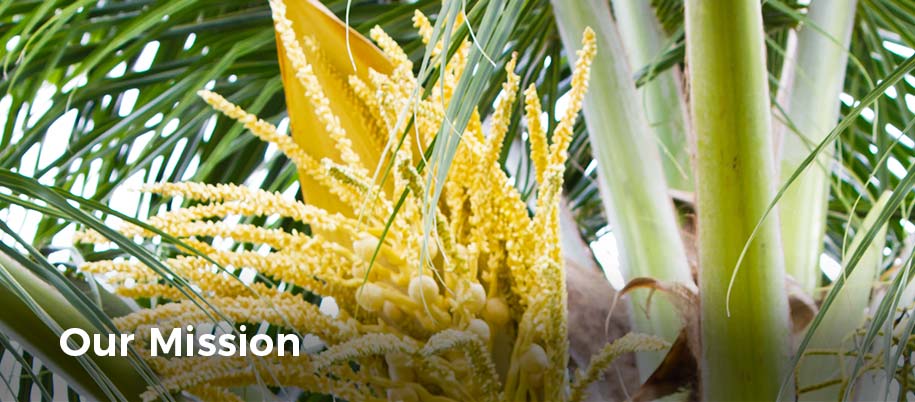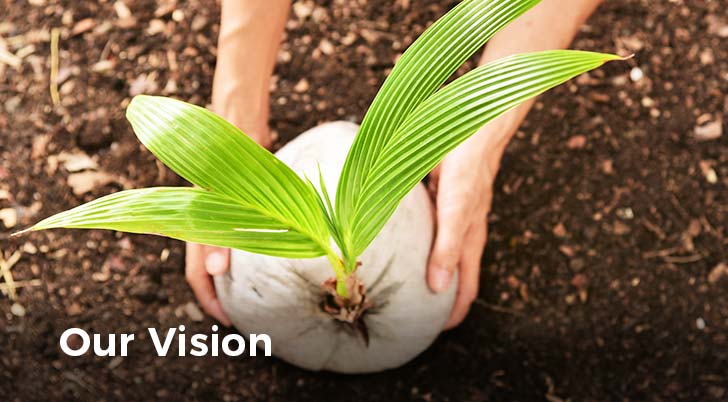Beyond Organic, Beyond Fair Trade
Dr. Bronner’s helped set up its sister company Serendipol in Sri Lanka in 2007—and it has since become the world’s foremost supplier of fair trade and organic coconut oil. Serendipol works with more than 1,200 farmers farming 21,000 acres, employs over 250 workers and professional staff at its factory in Kuliyapitiya, and processes up to 30 million coconuts a year. But these numbers don’t tell the whole story.
From the project’s inception, Serendipol staff together with Dr. Bronner’s technical advisors have been looking for ways to improve how the land is farmed. Regenerative organic agriculture has become a passion and guiding principle—it holds the promise of growing crops in a way that enriches soil, promotes biodiversity, improves yields, sequesters atmospheric carbon and is more resilient to the changing conditions that come with a warming Earth. Implementing regenerative organic methods on our Serendipol farms is a top priority, and when the Regenerative Organic Certification completes its pilot phase, we expect that Serendipol’s Organic Coconut Oil will be able to proudly display the Regenerative Organic Certification seal.
On the ground, this means that Serendipol’s agricultural field officers are continuously working with farmers to educate and coach them on regenerative organic techniques. All new farmers go through a training program on organic practices, fair trade standards, and selection of nuts for seedlings—annual refreshers are also mandatory. In addition, a portion of the fair trade premium paid by Serendipol’s customers has been used to supply farmers with subsidized compost and better coconut seedlings, setting them up to be successful regenerative organic farmers. Some of the techniques that Serendipol farmers are implementing are outlined below, ones that they themselves have identified in field interviews as crucial to their ongoing success.
Using Coconut Husks and Fronds as Mulch
The first step in processing coconuts is to remove the soft outer husk. A portion of these husks are sold and processed into fiber for rope and doormats. The balance, usually smaller husks with defects, are transported back to farms. Here, they are used as a highly water-absorbing, potassium-rich mulch that covers the soil surrounding the coconut trees, retains water, prevents evaporation and allows potassium to gradually leach back into the soil where it can nourish the coconut trees.
With climate change Sri Lankan farmers face unpredictable weather: longer droughts that alternate with torrential downpours which can waterlog and erode the soils. The use of the spongy husks for soil protection and water storage is a traditional technique used by Sri Lankan farmers. Often, the husks are also buried in the soil near trees. With the changing weather patterns, finding methods for conserving water during dry spells and channeling it properly during downpours has become essential. Palm fronds that have dried up and fallen to the ground are also collected and used as additional mulch and soil cover.
Weeds can also be used as mulch. In tropical climates weeds and brush grow rapidly, particularly during the rainy season. Serendipol’s farmers slash weeds regularly, either with machetes or with tractors. The slashed weeds are used as mulch that covers the ground, reduces erosion and returns biomass into the soil—increasing the resilience of soil to drought and torrential floods.
Replacing Aging Trees with New Seedlings
Many of Serendipol’s farms feature older trees that have become less productive as they’ve aged. To motivate farmers to replace these trees and increase their coconut yields, Serendipol initiated gradual replacement of these trees with productive seedlings of local varieties starting in 2013.
Initially, Serendipol issued seedlings from its own on-site nursery. Now the company subsidizes the purchase of seedlings from the Coconut Cultivation Board’s nursery for underplanting. Seedlings are planted in between existing trees where they receive enough light to develop. Once old enough to produce nuts, the neighboring old trees are removed.
Intercropping and Mixed Grazing Systems
Several farmers practice intercropping where banana, pineapple, ginger, cinnamon, black pepper and other plants are planted in between coconut trees. The crops are laid out in a way that fits each plant’s ecological needs, with shorter plants thriving in the shade of taller trees. This technique increases biodiversity, reduces pest pressure, and increases the sequestration of atmospheric CO2 into the soil. Because crops are planted more densely, this also generates additional income per acre for farmers.
More than half of Serendipol farmers also keep cattle on their coconut land, where they are allowed to graze on the weeds and grass that grow alongside coconut trees. This is an effective way to convert weeds and grass into manure, stimulate the growth of plant roots and further support the sequestration of CO2 into biomass. Some farmers also produce their own compost on site, using animal manure and biomass.
Putting Fair Trade Funds to Work
Farmers are not only paid an organic premium for their coconuts, but an additional fair trade premium paid by Serendipol’s customers is deposited into a Fair Trade Fund. A Fair Trade Committee, made up of farmers, Serendipol workers and Serendipol officers, meets regularly to discuss how the funds will be used, identifying community needs and working to address them.
Serendipol’s Fair Trade Fund has funded a range of infrastructure, medical and educational projects. Fair Trade Funds have been used to build vital infrastructure in marginalized communities, such as bridges, roads and electricity, as well as to purchase critical medical equipment for hospitals and clinics in more remote rural regions. Some projects benefit farmers very directly, providing first aid kits that they can keep on the farm, or wells on their property so that they have ready access to fresh water.
Offering Hope for Local Communities and Global Challenges
Regenerative organic agriculture is based on the insight that a farm’s soil, plants, animals and people are all part of an interconnected system. For the system to thrive as a whole, all of its parts must be sufficiently nurtured. From this perspective, fair trade principles are an indispensable part of regenerative organic agriculture. A system that sustains plants and animals but exploits people is a not a true sustainable system.
For Sri Lankan farmers, regenerative organic practices have to produce tangible results in order to be more widely adopted: better yields, elimination of pesticide exposure, more resilience to climate change, more income. Their concern is not with climate change in the abstract, but with the already visible changing conditions that are impacting their livelihoods.
A system that can be widely and cheaply adopted is also crucial for the global challenge of sequestering carbon and mitigating the worst effects of climate change. Small-scale farmers are the norm around the world, not the exception, and so any system of sustainable agriculture is meaningless unless it can get small-scale farmers on board. Serendipol is showing that widespread adoption of regenerative organic practices is possible and that there is hope for creating an agriculture that restores, rather than depletes, our fragile Earth.

